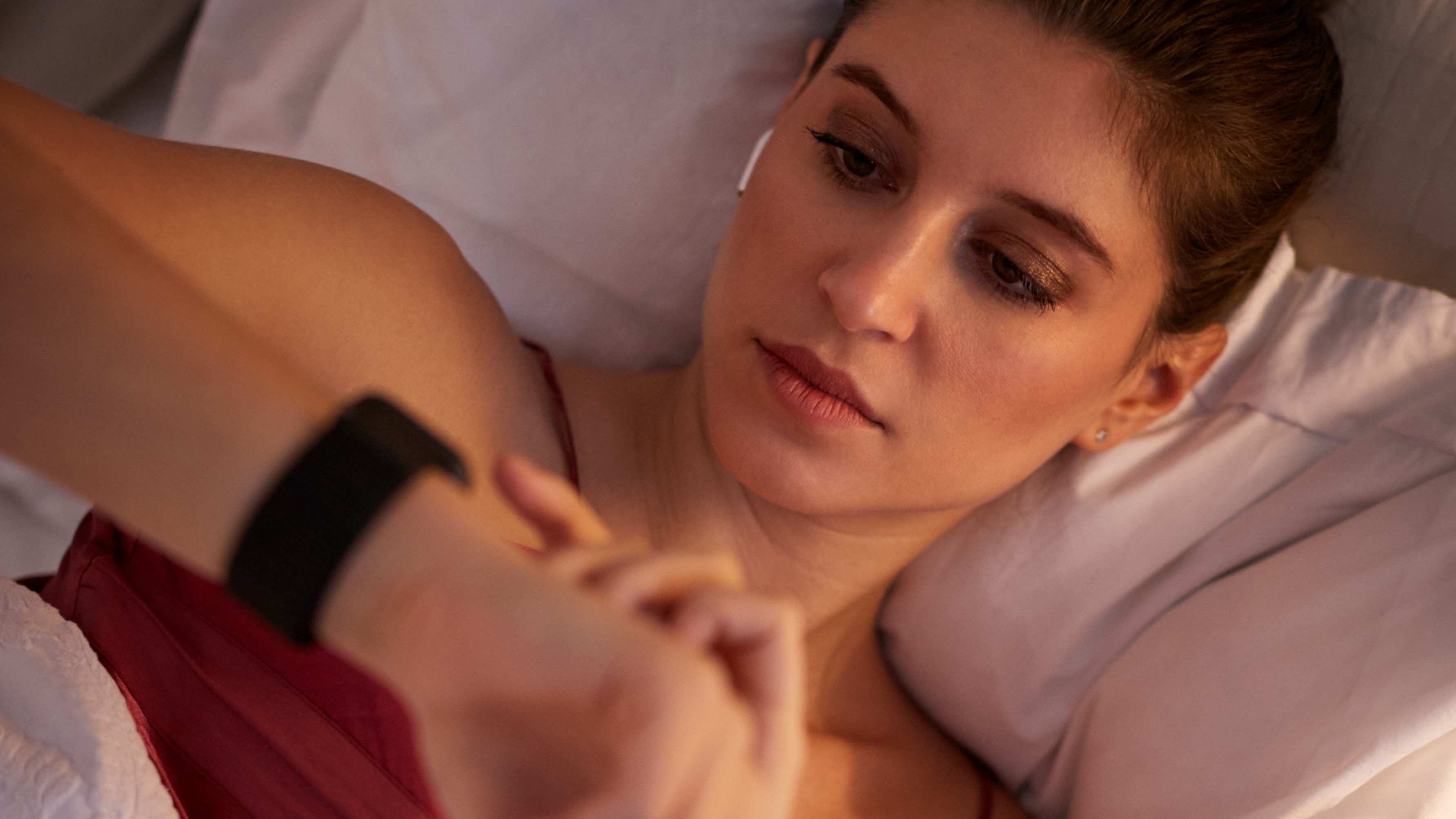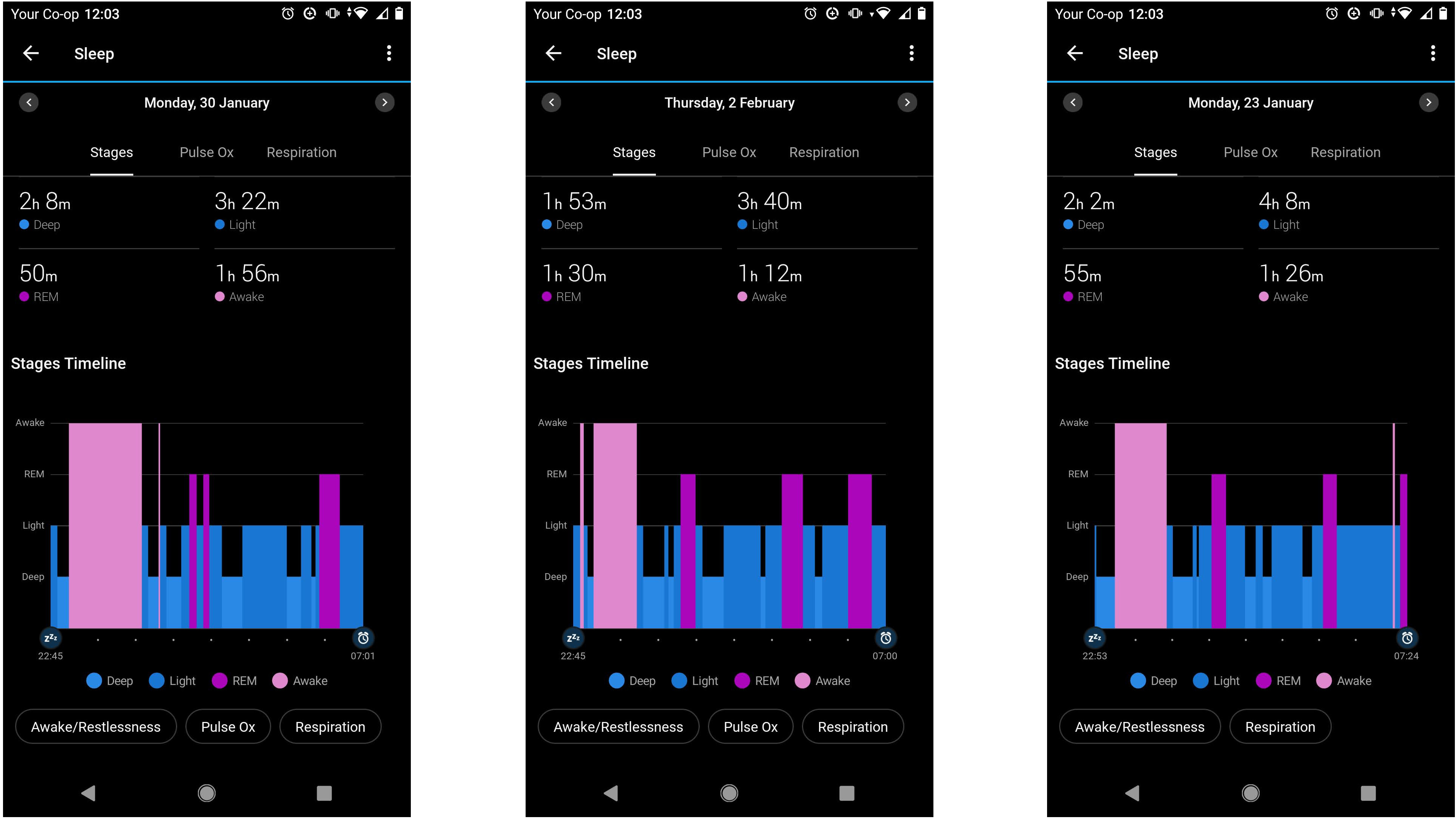
All the latest inspiration, tips and guides to help you plan your next Advnture!
You are now subscribed
Your newsletter sign-up was successful
I'm not the best when it comes to sleeping habits, but I didn't realise just how bad until I got into the routine of testing GPS watches regularly. Each morning I'd look with some embarrassment at a graph showing six, or even five hours of rest, sometimes with a note telling me I'm not doing myself any favors.
It's well documented that insufficient sleep contributes to a bevy of nasty health problems. According to Cleveland Clinic, these can range from being cranky and crabby at your partner, through to increased risk of high blood pressure and heart attack.
However, the thing that really prompted me to change my habits was wanting my Garmin Fenix 7 to track it properly
When you're first setting up a new Garmin watch, you'll be asked to enter a window between which you usually go to sleep. Somewhat optimistically, I always enter 11pm to 7am, which seems both sufficient and sensible. During this window, the watch checks heart rate and movement more frequently to look for signs that you've fallen asleep.
The problem is, if I'm late to bed, the watch will often mistakenly take a drop in heart rate and lack of movement (if I'm watching a nice gentle nature documentary, for example) for me falling asleep, and enter sleep mode. In the morning, the sleep report will suggest that I got a full eight hours, but with a long period of 'restfulness' when I was actually brushing my teeth and preparing for bed.

I wouldn't call myself a couch potato exactly, but this was definitely a 'me' problem rather than an issue with the watch. After all, how can it know the difference between zoning out motionless watching a man make the perfect tarte au citron after a run, and actually settling down for the night.
And if the sleep score is wonky, other stats (recovery time, training readiness, Body Battery) are surely going to be off as well. When you've paid several hundred pounds for a watch to give you that information, that's no good at all.
All the latest inspiration, tips and guides to help you plan your next Advnture!
Something had to change, and that meant either resigning myself to my bad habits and setting the sleep window to a depressing 12:30am to 7am, or making a concerted effort to stick to the original plan and get to bed on time.
So far it seems to be working, and my desire to get the most our of my watch is proving more of a motivation than actually feeling refreshed in the morning or reducing my risk of a horrible disease.
If your morning sleep reports are looking wonky too, it may be worth thinking of it as a feature rather than a bug and getting your act together.
- Best cheap GPS watches: for runners on a budget

Cat is Homes Editor at TechRadar and former editor of Advnture. She's been a journalist for 15 years, and cut her teeth on magazines before moving online. She helps readers choose the right tech for their home, get the best deals, and do more with their new devices.
